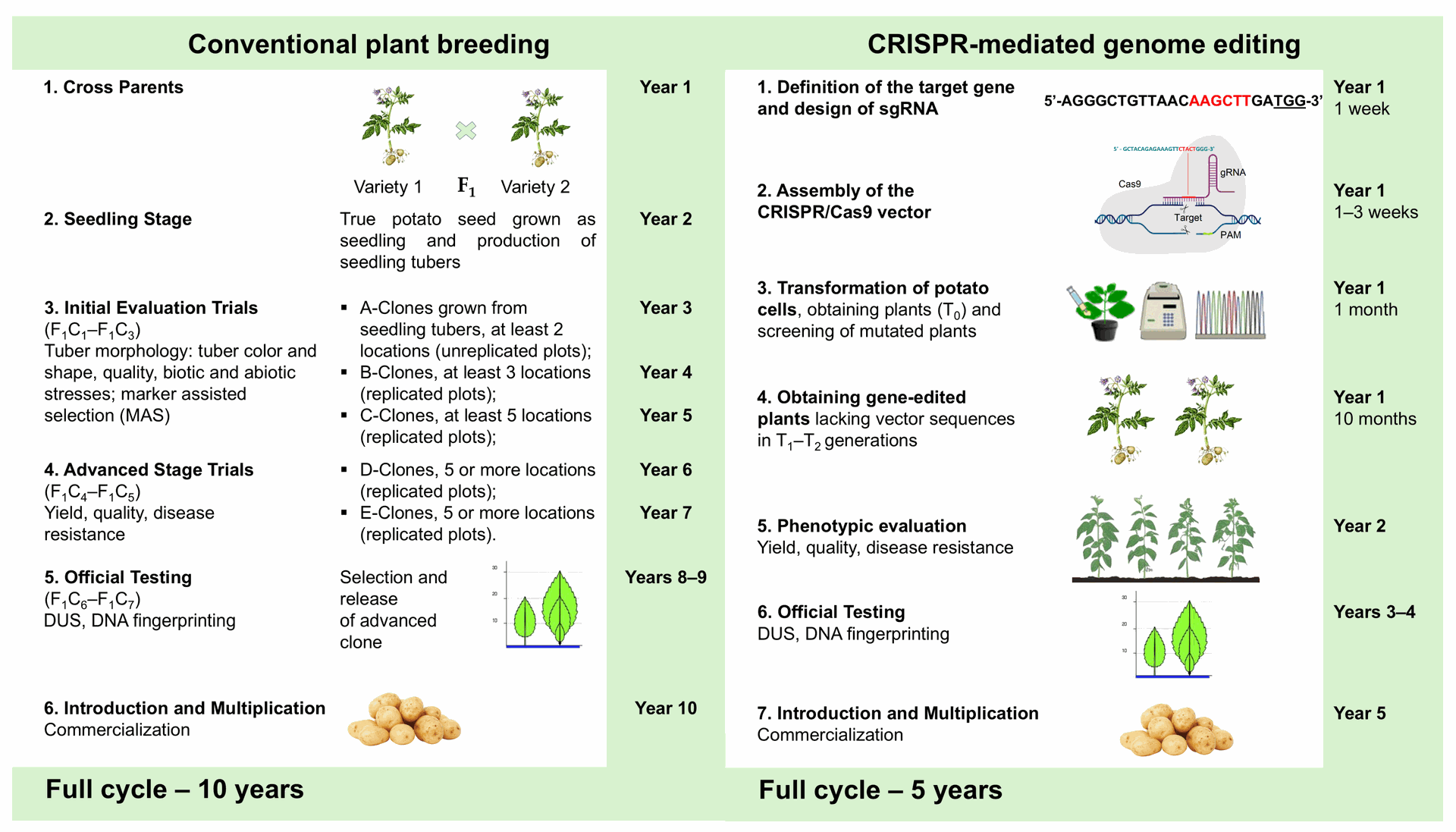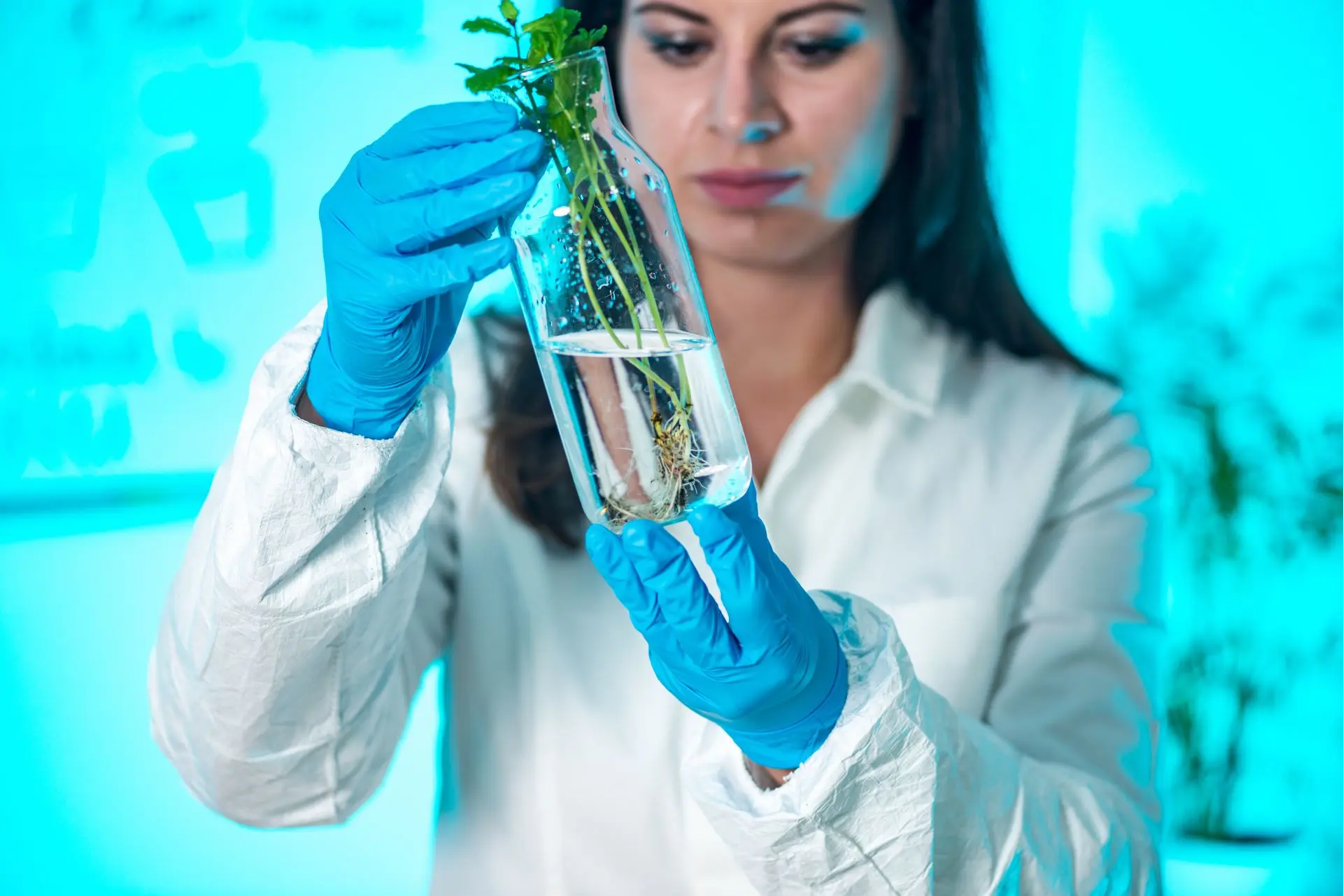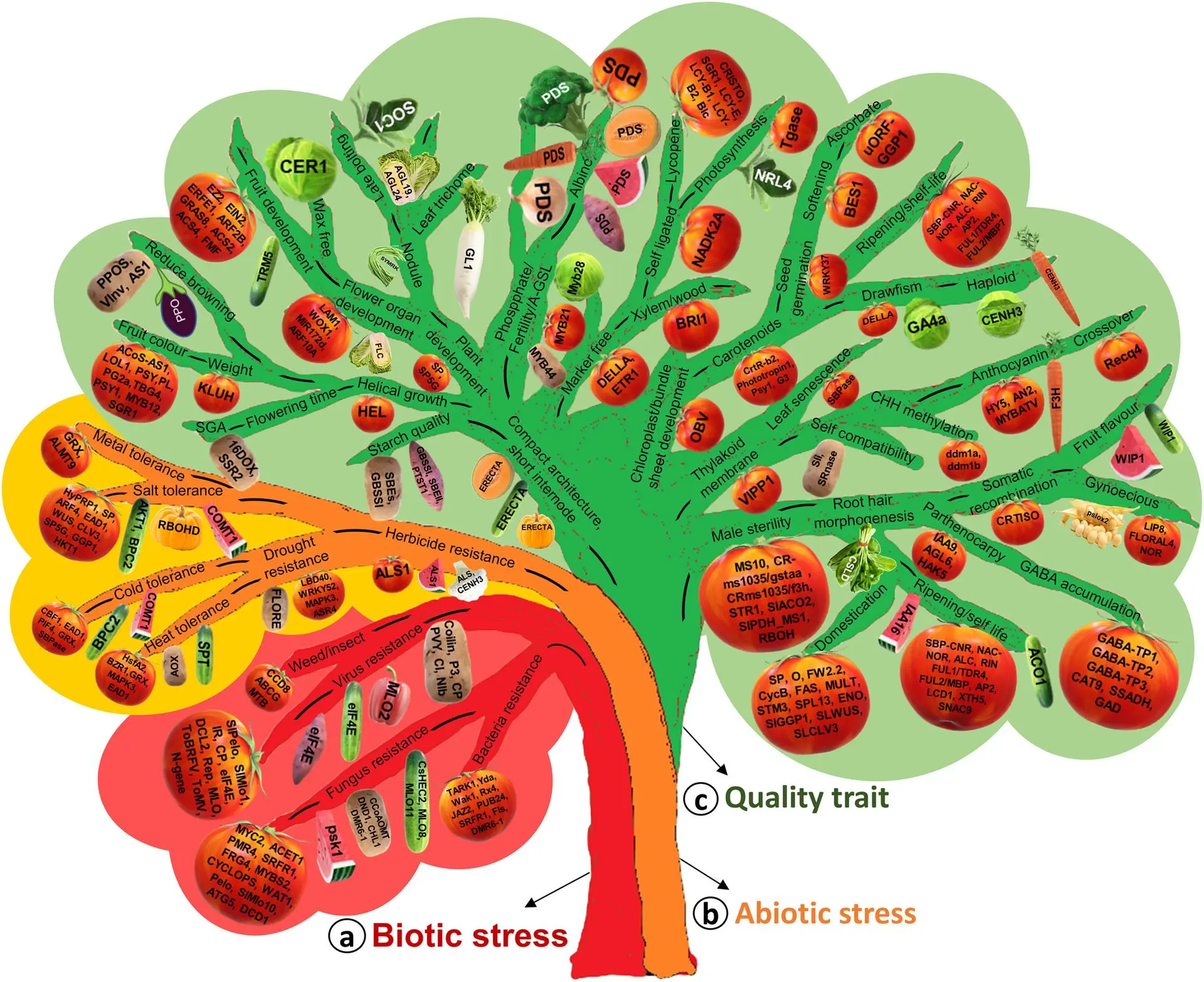Smart Farming: How Vegetable Biotechnology is Transforming Caribbean Agriculture
“Fostering innovation in plant science to enhance the resilience of Caribbean crops against climate change"
Green Revolution !
Vegetable biotechnology is rapidly reshaping the future of farming across the Caribbean, offering promising solutions to the unique challenges faced by the region’s agricultural sector. By harnessing advanced techniques such as tissue culture, marker-assisted selection, and precise gene editing technologies like CRISPR, researchers and scientists are developing vegetable varieties that are not only higher yielding but also more resilient to the Caribbean’s tropical climate. These hardier crops are specifically tailored to withstand common stressors such as pests, diseases, drought, and soil salinity factors that have historically limited productivity for smallholder farmers and large-scale producers alike.
Beyond simply increasing crop yields, these biotechnological innovations promote more sustainable farming practices by optimizing resource use reducing the need for excessive fertilizers, pesticides, and water. This shift supports environmental conservation efforts while improving economic outcomes for farmers through increased efficiency and reduced losses. Furthermore, the integration of smart farming technologies and biotechnology positions the Caribbean as a growing leader in sustainable, biotech-driven agriculture. Through regional collaboration, investment in research infrastructure, and knowledge sharing, Caribbean nations are paving the way for a more food-secure and climate-resilient future powered by vegetable biotechnology.
Boosting Caribbean Vegetables with CRISPR and Plant Biotechnology
The application of CRISPR gene-editing technology in Caribbean vegetable research is opening transformative new doors for crop improvement and agricultural resilience. This cutting-edge biotechnology allows scientists to precisely edit specific genes in plants, enabling the development of vegetable varieties that are more nutritious, grow faster, and thrive under the increasingly harsh conditions brought on by climate change. In a region where extreme weather events, such as droughts and hurricanes, threaten food production and farmer livelihoods, CRISPR presents a powerful tool for building a more secure agricultural future.
Researchers across the Caribbean are already applying CRISPR to staple and culturally significant crops such as peppers, tomatoes, callaloo, and okra enhancing not only their resistance to pests and diseases but also their nutritional profiles and shelf life. This technology significantly reduces the time required for traditional breeding, accelerating the development of improved crop varieties that can be adopted by smallholder farmers. Moreover, the accessibility of CRISPR makes it an attractive option for public research institutions and regional biotech programs working with limited resources.
By integrating CRISPR into local agricultural research strategies, the Caribbean is taking a bold step toward democratizing biotechnology, strengthening food systems, and empowering communities with science-driven solutions. This shift holds promise not only for improved yields and farmer incomes but also for long-term sustainability and regional food sovereignty.


Climate-Ready Crops: The Role of Vegetable Biotech in Caribbean Resilience
As the Caribbean grapples with the escalating impacts of climate changerising temperatures, erratic rainfall, prolonged droughts, and stronger storms its agricultural sector faces growing uncertainty. Smallholder farmers, who make up a large portion of the region's food producers, are particularly vulnerable to these environmental pressures. In this challenging context, vegetable biotechnology is emerging as a vital tool to build climate-resilient farming systems capable of withstanding both current and future threats.
Through innovations in genetic modification, marker-assisted breeding, and plant tissue culture, researchers are developing vegetable crops that can tolerate extreme heat, salinity, water scarcity, and shifting disease patterns. These "climate-ready" crops not only help ensure a steady supply of fresh produce year-round, but also reduce dependence on imported fooda growing concern for island nations with fragile food security. Improved varieties of regionally important vegetables such as okra, peppers, sweet potatoes, and leafy greens are being designed to thrive in marginal soils and erratic weather, offering a sustainable solution for local production.
Governments, research institutions, and regional organizations are increasingly investing in agricultural biotechnology and climate-smart innovation. This includes funding for biotech labs, farmer education programs, and partnerships with international research networks. As a result, climate-resilient vegetable biotechnology is no longer a distant goal it is becoming an actionable strategy for sustainable rural development and long-term adaptation.
By embracing vegetable biotech as a core component of agricultural planning, Caribbean nations are laying the foundation for more robust food systems, greater self-sufficiency, and a healthier, more secure future for generations to come.

Biofortified Caribbean Vegetables: Fighting Malnutrition with Science
In many parts of the Caribbean, malnutrition persists not due to a lack of calories, but because of micronutrient deficiencies particularly in essential vitamins and minerals like iron, zinc, vitamin A, and folate. These hidden forms of hunger disproportionately affect vulnerable populations, including children, pregnant women, and low-income communities. To address this critical issue, scientists and agricultural researchers are turning to biofortification, a cutting-edge biotechnological approach that enriches the nutritional content of commonly consumed vegetables and staple crops.
Through plant breeding and modern genetic engineering, biofortification enhances the natural ability of crops like cassava, sweet potatoes, leafy greens, and yams to deliver higher levels of essential nutrients. These improved crops can help prevent conditions like anemia, impaired immune function, and developmental delaysall while preserving local culinary traditions and crop preferences.
What makes biofortified vegetables especially impactful is their scalability and sustainability. Once developed, these crops can be grown and distributed using existing farming systems, allowing rural and urban households alike to benefit from more nutritious harvests without changing their eating habits or increasing food costs. In the Caribbean context, where agricultural land and import dependency are constant challenges, locally grown biofortified vegetables offer a powerful solution to both malnutrition and food sovereignty.
Governments, research institutes, and regional development agencies are increasingly investing in biofortification programs, viewing them as an intersection of public health, agriculture, and economic development. By integrating biofortified crops into local farming practices, school feeding programs, and national nutrition strategies, the Caribbean is taking bold steps toward a healthier, more resilient, and self-sufficient futurepowered by science and rooted in regional biodiversity.


From Lab to Field: How Biotechnology is Enhancing Caribbean Vegetable Yields
Vegetable biotechnology is bridging the gap between scientific innovation and real-world farming in the Caribbean. Through partnerships between universities, research centers, and agricultural cooperatives, cutting-edge lab techniques are being translated into practical solutions for the field. The result? Improved yields, reduced losses, and more profitable harvests for Caribbean farmers. Whether it’s via disease-resistant seedlings or precision irrigation combined with biotech crops, the region is embracing a new era of agricultural productivity.
